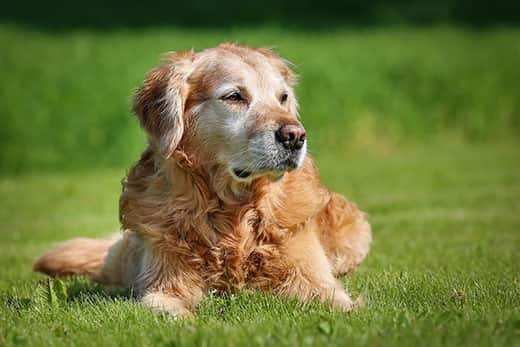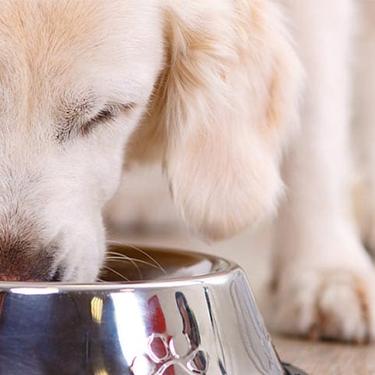
-
Find the right food for your pet
Take this quiz to see which food may be the best for your furry friend.
Find the right food for your pet
Take this quiz to see which food may be the best for your furry friend.
Featured products
 Adult Healthy Cuisine Roasted Chicken, Carrots & Spinach Stew Dog Food
Adult Healthy Cuisine Roasted Chicken, Carrots & Spinach Stew Dog FoodDelicious roasted chicken paired with tender vegetables in a succulent stew
Shop Now Small & Mini Savory Stew with Chicken & Vegetables Dog Food
Small & Mini Savory Stew with Chicken & Vegetables Dog FoodA delicious complement to the nutrition of Science Diet Small & Mini 7+ dog food
Shop Now Adult 7+ Perfect Digestion Chicken, Whole Oats & Brown Rice Recipe Dog Food
Adult 7+ Perfect Digestion Chicken, Whole Oats & Brown Rice Recipe Dog FoodScience Diet's breakthrough nutrition supports ultimate digestive well-being & healthy microbiome for dogs age 7+
Shop NowFeatured products
 Adult Savory Entrée Can Variety Pack Cat Food
Adult Savory Entrée Can Variety Pack Cat FoodPrecisely balanced nutrition with the delicious taste of savory minced chicken to help fuel the energy needs of cats during the prime of their life
Shop Now Adult 7+ Tender Tuna Dinner Cat Food
Adult 7+ Tender Tuna Dinner Cat FoodWith delicious chunks in a decadent gravy
Shop Now Adult 7+ Senior Vitality Chicken & Vegetable Stew Cat Food
Adult 7+ Senior Vitality Chicken & Vegetable Stew Cat FoodImproves Everyday Ability to Get Up & Go
Shop Now -
Dog
- Dog Tips & Articles
-
Health Category
- Weight
- Food & Environmental Sensitivities
- Urinary
- Digestive
- Joint
- Kidney
-
Life Stage
- Puppy Nutrition
- Adult Nutrition
- Senior Nutrition
Cat
- Cat Tips & Articles
-
Health Category
- Weight
- Skin & Food Sensitivities
- Urinary
- Digestive
- Kidney
-
Life Stage
- Kitten Nutrition
- Adult Nutrition
Featured articles
 Does My Pet Hate Me?
Does My Pet Hate Me?Learn tips for bonding with your pet if you've ever thought, 'My dog doesn't like me, or 'Why do I have a standoffish cat?'
Read More Why Are Dogs and Cats So Cute?
Why Are Dogs and Cats So Cute?If waggy puppy dog tails and furry kitten yawns make you swoon, you're not alone. Why are cats so cute? And, dogs too! Let's find out!
Read More Do Dogs and Cats have Belly Buttons?
Do Dogs and Cats have Belly Buttons?Learn whether cats & dogs have belly buttons like humans, what the function is, and if there are any health concerns associated with it.
Read More -


Caring for older dogs comes with challenges, but your bond with your pet means every moment you spend with him matters to you both. That's why you want to give him and yourself as many of those moments as possible. So how can you keep your older dog feeling young? It starts with offering him a high-quality food that is specifically made for his aging healthcare needs, but it's also important to keep him physically and mentally active. If you do those things, you'll go a long way in guaranteeing you and your furry best friend will make the most of his golden years.
When Is a Dog Considered "Elderly?"
It depends on his size and breed. Generally, larger breeds reach mature adulthood and senior status earlier than small breeds. An analysis of 2.5 million dog veterinary records by Banfield Pet Hospital showed mixed-breed dogs weighing ninety pounds or more typically live eight years. That same analysis showed dogs under twenty pounds lived an average of eleven years. PetMD reports that the typical lifespan of large-breed dogs also varies by weight. Bulldogs, mastiffs, and Great Danes have the shortest lifespans (six and seven years) while Cairn terriers, Jack Russell terriers, Shih Tzus and other small breed dogs have the longest expected lifespans (thirteen and fourteen years).
Knowing this will help you understand your dog's changing needs and keep you informed of signs to be on the look out for that he might be slowing down a little and his care needs to change. But it doesn't mean that he can't still be fun and lively. Read on to learn about the signs of aging, and what you can do to keep him as full and vibrant as he was in his young adult days.
What Are Signs of Aging to Watch For?
Older dogs exhibit many of the same signs of aging as humans. Watch for:

- Vision loss. Cataracts, glaucoma, progressive retinal atrophy and sudden acquired retinal degeneration are the most common causes for vision problems in aging dogs. Caring for dogs with vision problems can offer a special set of challenges for the rest of the family, but certainly doesn't mean a poor quality of life.
- Oral problems. Tartar, gingivitis, and tooth and gum disease are all serious health issues for dogs. Banfield's study reported small breed dogs (including dachshunds, Yorkshire terriers, Shih Tzus, and Maltese) have the highest prevalence of dental disease. Left untreated, these issues can lead to infection, tooth loss, bone damage and oral pain. Talk to your veterinarian if your dog exhibits symptoms, such as bleeding gums or bad breath.
- Weight gain (or loss). Older dogs who are in pain tend to get less exercise, which can result in weight gain. Conversely, if you have a dog that is inexplicably losing weight, it could be the result of dental, stomach or other health issues.
- Joint pain. Arthritis in older dogs is one of the most common health problems seen by vets. It can be difficult to diagnose because dogs often show only subtle signs of the pain they are experiencing. As a pet parent, you can look for signs of arthritic pain, such as less interest in playing, caution in climbing stairs or jumping on furniture and weight gain.
- Senility. PetMD reports clinical signs of cognitive dysfunction are found in 50 percent of dogs over the age of 11. Some common signs include disorientation, anxiety, inability to follow familiar routines, lack of self-grooming and house soiling.
Want more information on signs of aging in your dog? Check out these 'Tell Tails' (signs of aging), a helpful system for spotting signs of aging in older dogs. Here you can get information on the science behind aging, as well as compare your dog's age with human years to get a better sense of where your furry friend is in his lifestage.


Tasty Tips
How Can You Help Your Dog as He Ages?
Ask your vet to help you determine what food is best for your dog as his healthcare needs change, as there are a number of foods formulated specifically for aging or common ailments, like Hill's® Science Diet® Youthful Vitality. Youthful Vitality was formulated specifically with your aging dog's needs in mind. It helps fight the effects of aging to keep your dog feeling active and energetic. If also supports healthy body functions that can decline as your dog gets older.
Your dog's oral care is also something to be cognizant of as he gets older. Practicing good dental hygiene will keep your dog's mouth healthy too. If he won't let you brush his teeth, there are treats that will help keep his mouth clean.
Caring for older dogs means keeping an eye out for any behavioral changes. If you notice changes such as your dog being more aggressive, a loss in appetite, or drinking more frequently call your vet to get their expert opinion. Any change in your dog's regular routine might be a sign of a serious health issue that, if you're able to catch quickly, can be treated before it spirals into something more serious. That's why regular checkups have always been essential to your pet's health, and now, as your dog enters his later years, are even more important. Age-related symptoms can be subtle. Increasing routine exams to twice a year can help your vet establish a baseline so she recognizes quickly when a pet is not well.
Consider your dog's comfort as he gets up in years. Regular exercise—like walks, fetch and indoor play—help keep the extra pounds off and can slow degeneration of joints. Make sure to always have water available, and if your dog seems tired, give him a rest. Non-slip rugs might help a dog that's afraid of sliding on a slippery wood floor. A portable ramp can help him into the car. An orthopedic dog bed can give his aching body a much-needed rest.
To keep your dog's brain sharp, enroll in a class together (you can teach an old dog new tricks!), give him "food puzzles," or start a game of hide-and-seek with his treats.
Finally, give him lots of love. You and your dog have always enjoyed cuddling sessions, but now they're more important to your dog than ever. Just because a dog has lived a long life, doesn't mean he can't live a longer, more enjoyable life. With proper care and attention, your dog can continue to live a vibrant life in his older years.


Kara Murphy is a freelance writer and pet parent who lives in Erie, Pa. She has a goldendoodle named Maddie.
Related products
Related articles

Proper nutrition for your pregnant or nursing dog is vital to her and her puppy's health. Learn what you should do provide her with the proper nutrients.

Learn about choosing the right dog food to help ensure your adult dog will receive the correct balance of nutrition.

Learn the the dangers of feeding your dog chocolate, which types are most dangerous, and what to do if you discover that they have consumed chocolate.

Learn how today's wet dog food blends have gotten a face lift, and how you'll provide your dog the nutrition he needs in the form he loves.

Put your dog on a diet without them knowing
Our low calorie formula helps you control your dog's weight. It's packed with high-quality protein for building lean muscles, and made with purposeful ingredients for a flavorful, nutritious meal. Clinically proven antioxidants, Vitamin C+E, help promote a healthy immune system.
Put your dog on a diet without them knowing
Our low calorie formula helps you control your dog's weight. It's packed with high-quality protein for building lean muscles, and made with purposeful ingredients for a flavorful, nutritious meal. Clinically proven antioxidants, Vitamin C+E, help promote a healthy immune system.

